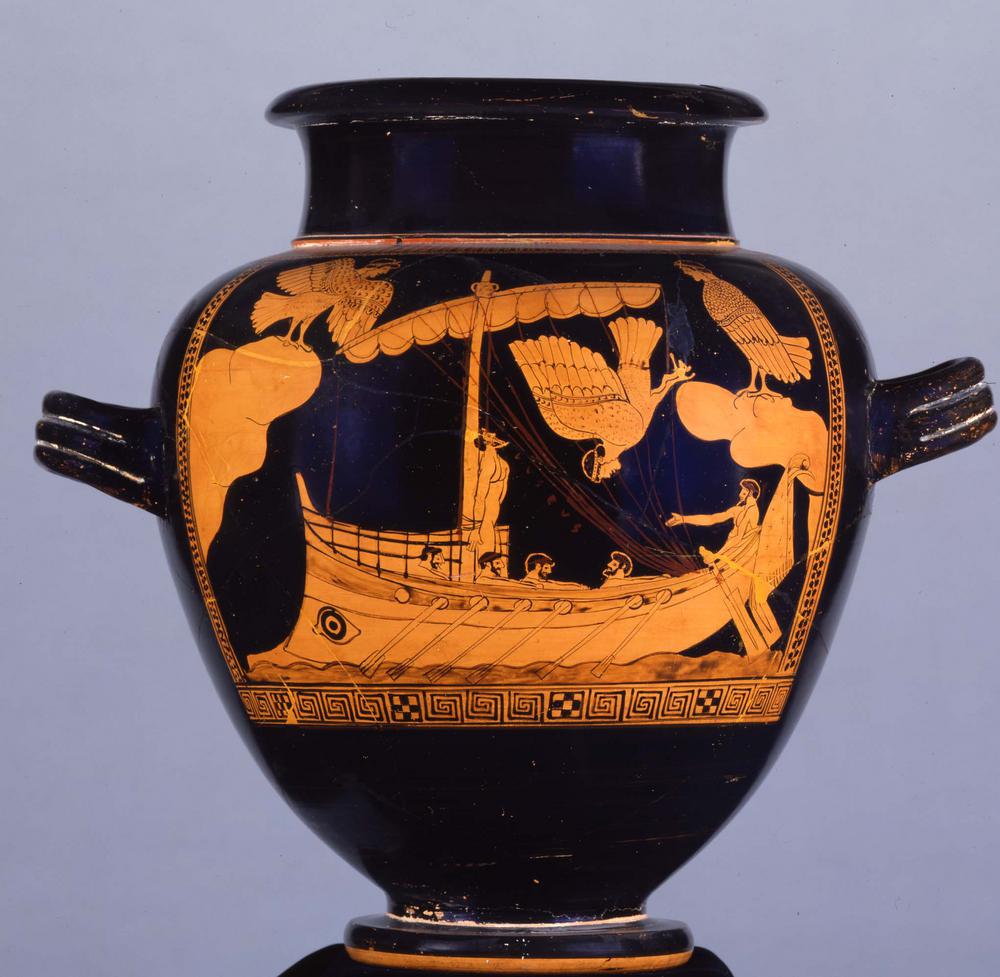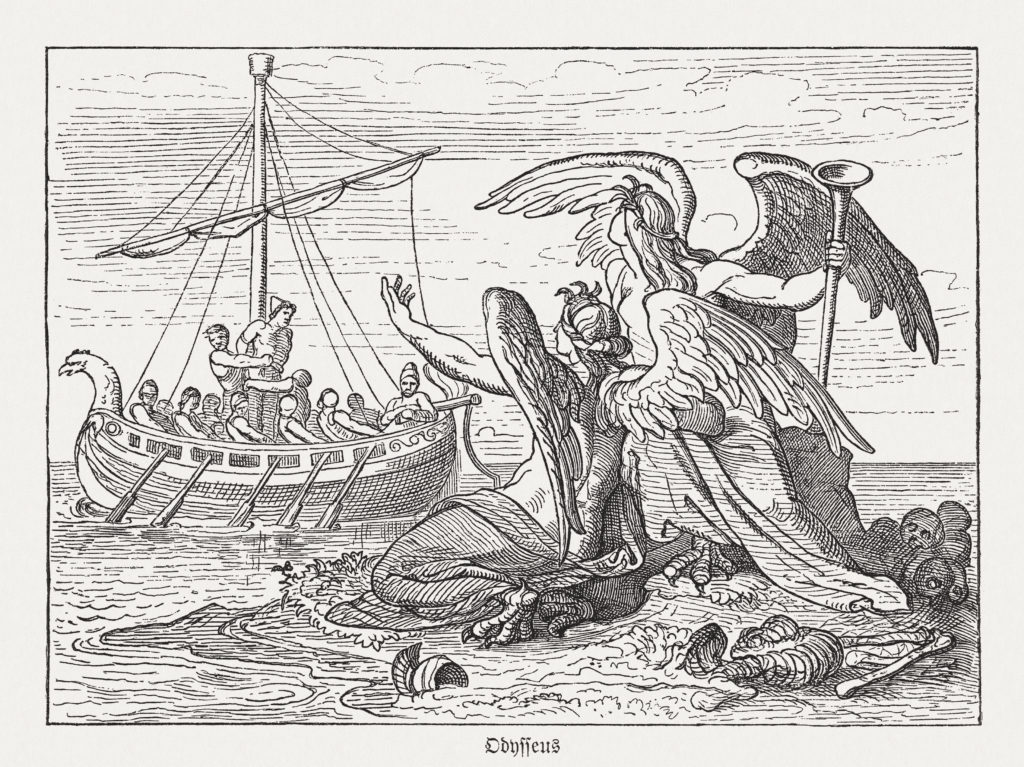Sirens Are All Around Us!
Who doesn’t love being lured to their death through the deceptive power of wily women, right?! Men. Men don’t.
And this is precisely what Margaret Atwood explores in her poem, “Siren Song,” a retelling of The Odyssey from a Siren’s perspective used to expose the overlooked feminism in the Homeric classic.
From Traditional to Transformative
Woven from violence and patriarchal dominance, this quintessentially testosterone-filled Odyssey is flipped on its head to show the strength of female power.
But first, in case you haven’t had the pleasure of trekking through Odysseus’ journey at all hours of the night, a feeling all too well-known to high school and college students, Atwood’s got you covered:

Stamnos illustrating the Sirens (in their traditional half-bird form) attacking Odysseus and his crew.
This is the one song everyone
would like to learn: the song
that is irresistible:
the song that forces men
to leap overboard in squadrons
even though they see the beached skulls
the song nobody knows
because anyone who has heard it
is dead, and the others can’t remember.
Even from this SparkNotes-length depiction of the Sirens, Atwood establishes the immensity of men’s susceptibility to temptation. Despite seeing the “beached skulls,” they are willing to “leap overboard in squadrons” to hear the song better. Ultimately, these men are “easy targets” for the Sirens; they are easily blinded by temptation with little work on the Sirens’ part.
Throughout Atwood’s version of this encounter, though, we never hear who the target is. That’s because we are the victims.
In true Siren fashion, Atwood lures us into her trap through the irresistible promise of the secret, then drags us on a journey as our anticipation heightens. But of course, there’s a caveat: the dominating figure must give up something in return.
Shall I tell you the secret
and if I do, will you get me
out of this bird suit?
Both the Siren and Atwood are able to gain the upper-hand over their oppressors by entrancing them with their art, rather than physical force. Having this upper-hand promotes Atwood’s feminist agenda by recognizing seemingly more subtle strength: the power of words.
A siren depicted in her original bird-woman form.
Atwood harnesses her own power by using a canonical Western text, allowing her to encompass references to both Greek mythology and phrases that have since become colloquialisms.
With just one word, “bird,” Atwood alludes to both the Sirens’ bird-human nature and the anti-feminist connotations of representing women as birds: helpless, fragile, cute, and “fluffy.” In this case, the man must “rescue” the woman by shedding the mentality of women being birdlike.
Otherworldly or Ordinary?
Atwood shows us how we don’t even need to introduce female empowerment into The Odyssey. It’s already there, just overlooked (much like women themselves)! She does this by likening seemingly “otherworldly sirens” (Wilson 12.161) to the traditional “trapped housewife” of the twentieth century, bringing the Sirens out of Bronze Age Greece and into the modern era, making them more relatable:

Woodcut engraving of the Sirens singing to Odysseus and his men.
I don’t enjoy it here
squatting on this island
looking picturesque and mythical
with these two feathery maniacs,
I don’t enjoy singing
this trio, fatal and valuable.
Characterizing the Siren as “picturesque,” forced to sing against her wishes, alludes to the traditional female gender role: to be a wife and mother, to entertain (primarily sing) and care for her husband, and all that jazz. Through this poem, though, Atwood is giving women a voice, exposing their frustration about their place in society.
The Secret Keepers
The tone distinctly shifts as we the reader get closer to the secret, the “greater knowledge” (12.188) we desire. We can feel the tension rising:
I will tell the secret to you,
to you, only to you.
Come closer. This song
is a cry for help: Help me!
Only you, only you can,
you are unique
at last. Alas
it is a boring song
but it works every time.
Much like Homer’s Sirens, Atwood latches onto men’s egocentric tendencies, exposing them as powerless against the will of a woman. She further characterizes women’s role in society as monotonous because, while it is “boring,” the Siren’s song still works! Every. Single. Time. She can capture her prey without even breaking a sweat!
And yet, we are left with the unsatisfying feeling of why the “magician” would reveal the magic of her trick…
“The secret” may be that there’s actually no secret at all! Men just want there to be; they want the thrill of the hunt. Like women, often invisible to men, “the secret” may be sitting right in front of their strong, manly physiques, if only they would open their eyes.
By Persephone Sween-Argyros, ’24
Persephone is a first-year undergraduate from Austin, TX studying at Colgate University. She intends to major in Mathematical Economics and minor in Psychological Science.